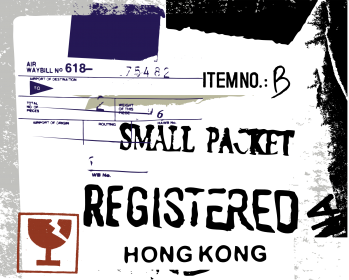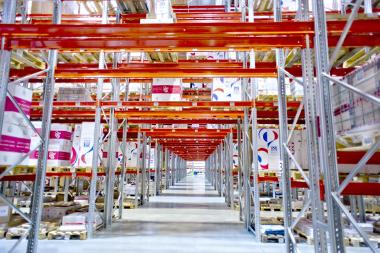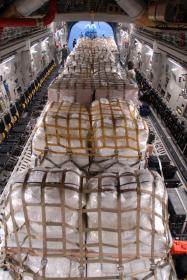CHINESE ALIBABA GROUP BUILDS LOGISTICS CENTER IN HONG KONG
- Investment costs of USD 1.5 billion
- State-of-the-art technology to be used
Hong Kong (GTAI) - Chinese e-commerce giant Alibaba wants to build up a global sales network. The Hong Kong Special Administra-tive Region (SAR) plays an important role in its strategy. A 380,000 square meter logistics center is to be built there, in which state-of-the-art warehouse and robot technology will be used. According to the plan, it will be operational by 2023. Foreign specialist suppliers can hope for orders.
The Chinese Alibaba Group is the largest e-commerce provider in the country. Now it wants to ex-pand into other markets. According to the company announcement, more than USD 1.5 billion are to be invested in the development of a worldwide distribution and logistics network.
The Small Special Administrative Region (SVR) plays a deciding role in its expansion strategy. It is home of the largest cargo airport in the world. According to the Hong Kong Civil Aviation Department, the volume there amounted to almost 5 million tons in 2017. According to the prognosis of the Airport Authority, the state operator, it should reach almost 9 million tons by 2030.
Hong Kong offers decisive locational advantages for international logistics groups and e-commerce providers. According to calculations by the Air-port Authority, around half of the world's population can be reached within five flight hours. As there are no customs duties or VAT and the SVR has an efficient bureaucracy, a fast dispatch is practically guaranteed. This fits into Alibaba's strategy, as the group wants to limit the delivery time for or-ders from abroad to a maximum of 72 hours.
Handling capacity of up to 1.7 million tons of freight
The e-commerce giant therefore wants to set up one of its worldwide distribution centers in Hong Kong via its logistics arm called Cainiao - others are planned in Hangzhou, Dubai, Kuala Lumpur, Liège and Moscow. It should get a size of around 380,000 square meters in size and will be able to handle a maximum of 1.7 million tons of freight. The corresponding investment costs will summarize to around USD 1.5 billion. It is scheduled to go into operation by 2023.
The group informed through the South China Morning Post (which it owns) that the new logistics center will be equipped with state-of-the-art technology. An automatic warehouse and highly efficient air conditioning are planned. According to industry experts, artificial intelligence-based systems and numerous robots will be used.
The project should thus also generate business opportunities for foreign suppliers of building and storage technology. There are hardly any sector manufacturers in Hong Kong itself. There are corresponding producers in China. However, they cannot always offer the most modern and best products and services available on the market. Particularly there is a pent-up demand for software.
| Designation | Internet address | Note |
| Alibaba | https://www.alibabagroup.com/en/news/article?news=p180606 (homepage); https://www.alibabagroup.com/en/news/article?news=p180606 (project press release) | Biggest e-commerce pro-vider in China |
| South China Morning Post | http://www.scmp.com/frontpage/international (homepage); http://www.scmp.com/tech/enterprises/article/2149561/alibaba-affiliate-cainiao-forms-jv-build-us15-billion-logistics (project review) |
Renowned English-language newspaper. Be-longs to Alibaba |
| Civil Aviation Department | https://www.cad.gov.hk/english/home.html (homepage) https://www.cad.gov.hk/english/facts_statstics.html (Hong Kong Air Traffic Statistics) |
Supreme Aviation Authority Hong Kong |
Further information
For more information on Hong Kong's economy, industries, business practices, law, customs, tenders, and development projects, visit http://www.gtai.com/hongkong.
The page http://www.gtai.de/asien-pazifik offers an overview of various topics in the region.
Roland Rohde, Germany Trade & Invest www.gtai.de





